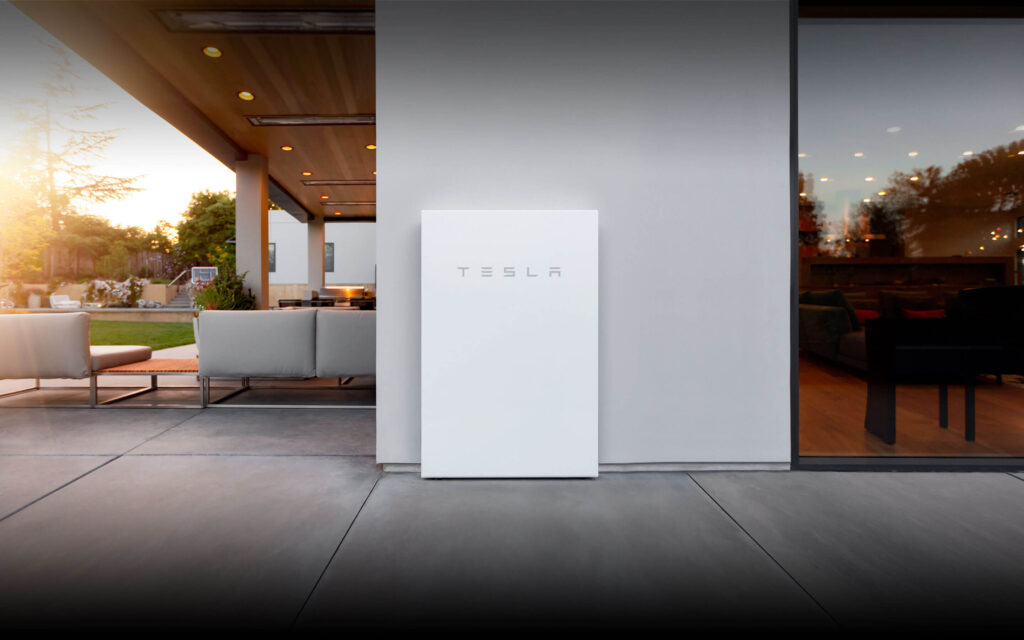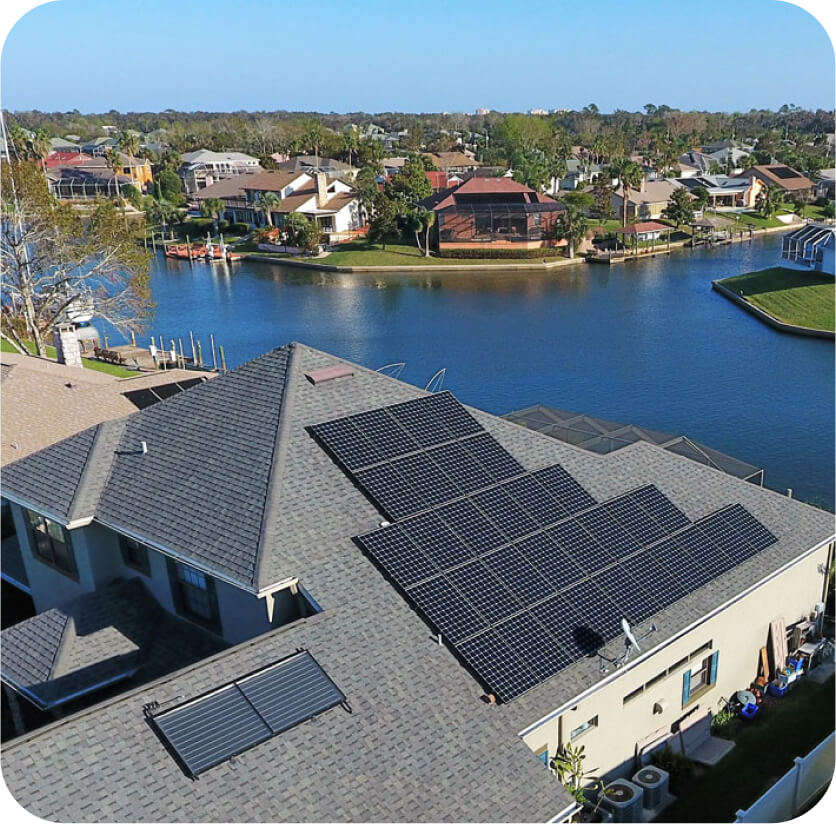Blog & News
Discover the True Cost of Solar Battery Backup + Home Batteries in Florida (2024 Guide)
When you think of a battery backup, you might initially picture the disposable ones used in everyday items like TV remotes. However, did you know that much larger batteries can power your entire home? At ProSolar Florida, we specialize in providing high-capacity home batteries tailored for the unique needs of Floridians.
Whether you’re dealing with frequent power outages, high electricity bills, or just seeking greater energy independence, investing in a home battery can be an excellent decision. You don’t necessarily need a home solar panel system to benefit from batteries, but combining them offers the most significant advantages. This is especially true if your utility company provides minimal compensation for the excess electricity your solar panels generate and send to the grid.
We’ll help you determine if backup batteries are right for you and guide you on how to find the best battery system for your needs at an optimal price.
Discover the Cost of Solar + Batteries in Florida in 2024
Batteries are a fantastic way to enhance your energy independence and maximize your solar savings.
While not everyone may benefit from a battery system, in many areas, particularly in Florida, you’ll see higher long-term savings and quicker return on investment with a solar-plus-storage system compared to solar alone.
The median cost of batteries on is $1,339 per kWh of stored energy, and various incentives can significantly lower your costs.
How Do Backup Batteries Work?
Batteries store energy produced at one time for use later. Instead of producing electricity exactly when needed, batteries allow you to generate and store electricity for later use, providing flexibility and several benefits, from financial savings to backup power during outages.
Most battery systems have a limit on how much energy they can store, so you may need additional batteries to increase capacity. Moreover, batteries don’t store electricity indefinitely; they lose charge over time even when not in use.
Why Are Batteries So Important?
Batteries play a crucial role in integrating renewable resources, providing resilience, and offering grid services. Let’s delve deeper into these benefits.
Batteries Integrate Renewable Resources
Batteries enable the storage of energy from renewable sources like solar, ensuring a steady supply of power even when the sun isn’t shining. This is particularly beneficial in Florida, where sunny days are plentiful, but weather conditions can be unpredictable.
Batteries Provide Resilience
With Florida’s propensity for hurricanes and storms, having a reliable backup power source is vital. Batteries can keep your home running during power outages, ensuring you have access to essential services and appliances.
Batteries Offer Grid Services
Batteries help stabilize the grid by storing excess energy during low-demand periods and releasing it during high-demand times. This capability supports a more efficient and resilient electrical grid.
How to Produce and Store Energy at Home
You don’t need solar panels to install a home battery, but remember, batteries only store energy—they don’t produce it. For true grid independence and significant savings on your electric bill, pair your battery system with solar panels. Here’s how the system works:
- Solar Panels Generate DC Electricity: Your panels convert sunlight into direct current (DC) electricity.
- Inverter Converts DC to AC: An inverter converts the DC electricity to alternating current (AC), which powers your home appliances.
- Battery Storage: Excess electricity charges your batteries.
- Nighttime and Outage Power: When the sun sets or during a power outage, the stored energy in your batteries powers your home.
Are Home Batteries Right for You? 4 Key Questions
While many homeowners can benefit from a battery backup system, they aren’t right for everyone. Here are four questions to help you decide:
1. Do You Frequently Experience Power Outages?
Power outages can be a significant inconvenience, and in some areas of Florida, they are a frequent occurrence. If you experience prolonged power losses multiple times each year, a solar-plus-storage system could be a worthwhile investment. Solar panels alone won’t power your home during an outage due to safety risks to utility workers. However, with a solar-plus-storage system equipped with islanding capabilities, you can continue running your home even when the grid is down.
2. Does Your Utility Company Offer Net Metering?
If your solar panel system produces more electricity than you need, net metering allows you to receive credits from your utility company for the excess electricity sent to the grid. However, some Florida utilities offer lower compensation rates for this excess electricity. Pairing your solar panels with a battery lets you store and use this energy when rates are high, maximizing your savings.
3. Do You Have Time-of-Use Rates or Demand Charges?
Even without solar, batteries can be beneficial if your utility uses a complex electricity rate structure. Time-of-use (TOU) rates, which vary based on demand, can be managed with a battery by using stored energy during high-rate periods. Similarly, demand charges, which are based on your maximum energy pull from the grid, can be reduced with a battery, resulting in significant bill savings.
4. Are There Local Incentive Programs Available?
Florida offers various incentives that can cover a significant portion of your battery costs or pay you for accessing stored energy during grid stress. These programs can help you break even on your investment much faster.
Batteries Aren’t Cheap – But They Can Pay Off
In 2024, a battery system costs about $8,944 after federal tax credits, according to SEIA. This may seem high, but if you’ve determined that a battery backup is right for you, it will pay off over time. For instance, if you live in an area with high TOU rates and no net metering, a home battery could save you significantly over the years.
Learn More About Battery Costs
Incentives Help Lower the Price
Numerous incentives are available that can substantially lower the cost of installing a home battery. Depending on your location, you could break even on your storage investment in a year or less. Here are some of the top battery incentives:
- Federal Tax Credit: The federal investment tax credit (ITC) covers a significant portion of your battery costs.
- Rebates: Various state and local rebates can further reduce your upfront costs.
- Bring Your Own Battery Programs: These programs pay you to provide stored energy to the grid during peak times.
- Virtual Power Plants: These programs allow you to sell excess stored energy back to the grid.
How to Pay for Your Battery
Your eligibility for many incentives depends on how you finance your battery system. Here are the main options:
- Cash: Paying upfront maximizes long-term savings but requires significant initial investment.
- Loan: Financing with a loan lets you qualify for incentives and start saving immediately if your loan payments are less than your previous electric bills.
- Lease: Leases for standalone batteries are rare, but adding a battery to your solar lease is an option. However, leased systems don’t qualify for many incentives.
Home Batteries vs. Generators: Which Is Best for You?
Home batteries and generators both offer backup power solutions, but they differ in several key ways:
| Metric | Home Batteries | Home Generators |
| Upfront Cost | $$$ | $ |
| Refuel Cost | None with solar | $$ over time |
| DIY Installation | No | Sometimes |
| Sound Level | Low | High |
| Powered by Fossil Fuels? | Typically no | Yes |
| Emissions-Related Health Concerns | No | Yes |
How to Choose a Home Battery
Selecting the right battery involves considering several factors:
Battery Chemistry
Your battery’s chemistry affects its performance, cost, and lifespan. Most home batteries use lithium-ion chemistries, including:
- Nickel Manganese Cobalt Oxide (NMC): Common and cost-effective but shorter lifespan.
- Lithium Iron Phosphate (LFP): Longer lifespan and more stable but higher cost.
- Lithium Titanate (LTO): Longest lifespan and fastest charge but most expensive.
Do You Already Have Solar?
Batteries can be AC- or DC-coupled. If you already have solar, you’ll likely need an AC-coupled battery. For new installations, DC-coupled batteries are more efficient.
Does the Battery Come with an Inverter?
Some batteries come with integrated inverters, while others need a separate one. The choice impacts your installation and equipment costs.
Storage Capacity and Power Rating
Consider your energy needs to determine the required capacity and power rating. More capacity means longer runtime, and higher power ratings allow for more appliances to run simultaneously.
Battery Performance
Two key performance metrics are Depth of Discharge (DoD) and Roundtrip Efficiency. Higher DoD and efficiency indicate better performance and utilization.
Warranty and Lifespan
Look for batteries with strong warranties covering years, cycles, and throughput. Check for additional warranty details like labor and shipping costs.
Compatibility with Energy Management Systems
Energy management systems enhance battery backup performance by allowing real-time control of energy use, extending backup power during outages.
Best Home Batteries
Some of the best batteries for Florida homeowners include Duracell, HomeGrid, and Villara Energy Systems. These brands offer a range of options to suit different needs and budgets.
How to Get Home Battery Backup: 5 Simple Steps
If you’re ready to install a home battery backup system with ProSolarFlorida, follow these steps:
- Get Quotes: Obtain multiple quotes from local installers to compare options.
- Choose an Installer: Select a reputable installer with experience in battery systems.
- Schedule a Site Visit: Have the installer assess your home for the best installation approach.
- Decide on Financing: Choose a payment method that fits your budget and maximizes incentives.
- Prepare for Installation: Ensure your home is ready for the installation process.
Frequently Asked Questions about Home Batteries
- How long does a backup battery last?
Battery lifespan depends on usage and battery chemistry but typically ranges from 10 to 15 years.
- How many batteries do I need?
The number of batteries depends on your home’s energy needs and desired backup duration.
- Is it worth installing a home battery?
Yes, especially if you face frequent outages, have TOU rates, or lack net metering. Incentives can make batteries a financially viable option.
For more personalized advice and to get started on your journey to energy independence, contact ProSolarFlorida today. We are dedicated to helping you find the best energy solutions for your home.



